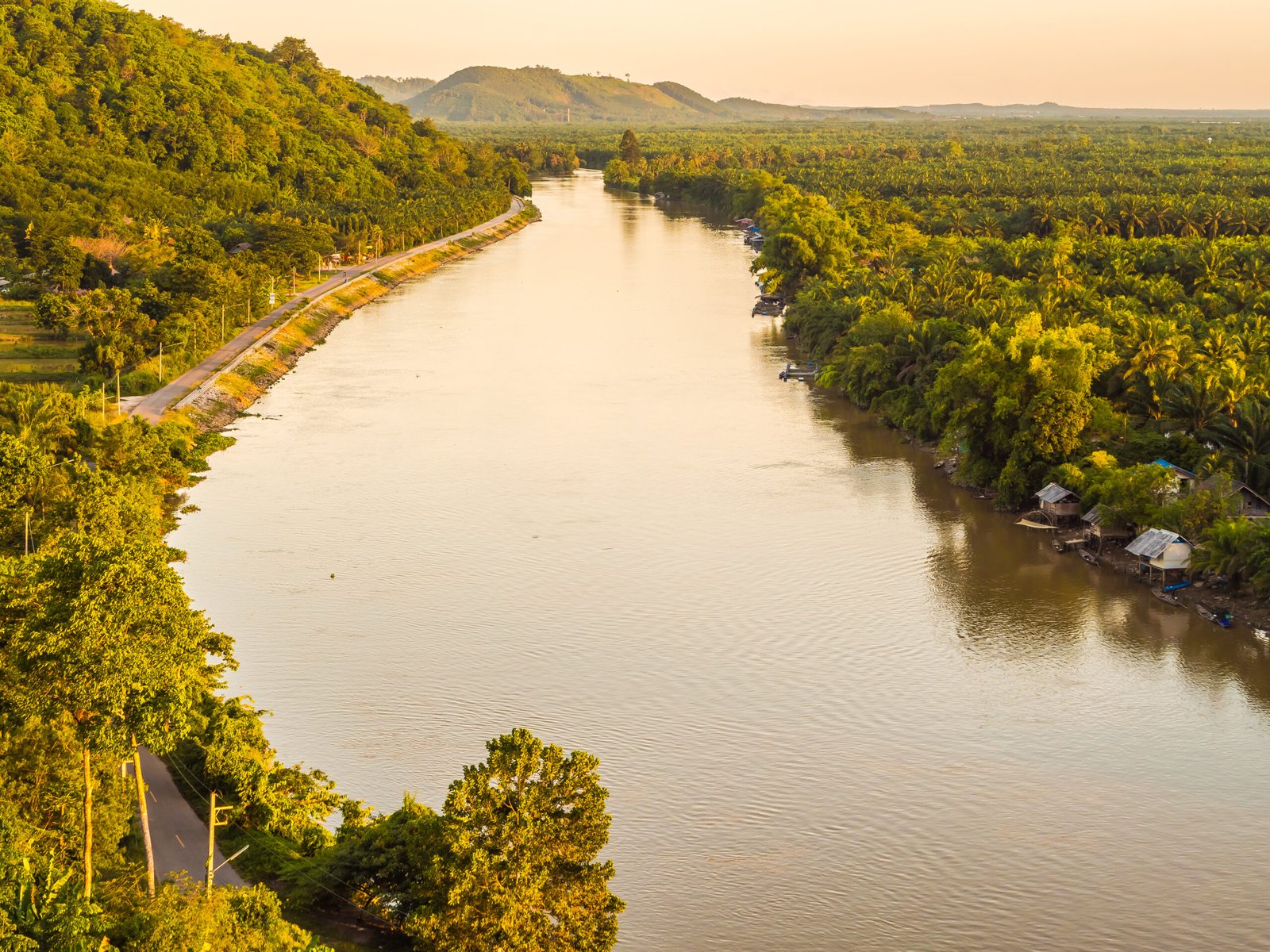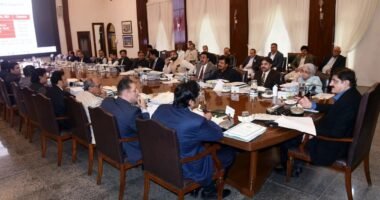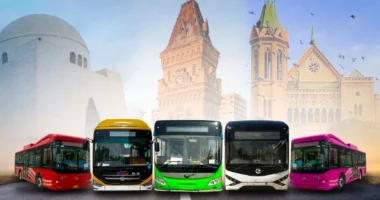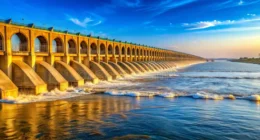
Introduction: Sindh Under Siege—Again
The federal government’s decision to construct six new canals on the Indus River to supply water to Cholistan and other areas of Punjab is not just technically flawed—it is a moral, political, and constitutional failure. This move, cloaked under the false promise of development, represents yet another assault on Sindh’s water rights, livelihood, and dignity.
Already reeling from chronic water shortages, Sindh’s agriculture-based economy stands on the edge of collapse. And while the Punjab government eyes more water for desert development, Sindh’s fertile lands are drying up. But this time, the people of Sindh, the Pakistan Peoples Party (PPP), civil society, and national voices of reason have risen together—and they are saying: enough is enough.
💧 A Looming Water Catastrophe for Sindh
Sindh is already fighting a battle against water scarcity. From the barrages of Sukkur to the fields of Badin, irrigation canals are running dry. Farmers are struggling to grow crops. Livestock is dying. Entire communities are being displaced.
Now, the construction of six more canals will divert even more water upstream, threatening to turn over 300,000 acres of farmland barren. This is not just poor planning—it’s a death sentence for Sindh’s economy, and a humanitarian crisis in the making.
💸 A Flawed, Bloated, and Mismanaged Project
Originally pegged at Rs. 218 billion, the cost of this canal project has now ballooned to Rs. 225 billion, with zero transparency or accountability. A proposed $3 billion dam in Chiniot—once central to the project—has mysteriously been abandoned.
Even worse, Rs. 45 billion were allocated in the current fiscal year, but not a single rupee has been utilized. What does that say about the planning, intent, and competence of those pushing this agenda?
This is not development. This is disaster, disguised as progress.
📜 History Repeats Itself: Cholistan Canal Plan Was Rejected in 1919
This isn’t the first time such an attempt has been made.
In 1919, the British colonial administration itself rejected the Cholistan canal proposal after thorough technical and environmental evaluation. They understood the damage it would cause to the lower Indus basin. Yet today’s federal and Punjab governments, in their lust for political control and land expansion, are ignoring science, sustainability, and the soul of the federation.
Even during the caretaker government, Punjab tried to push this project by seeking a No Objection Certificate (NOC) from IRSA, falsely claiming adequate water availability. The truth? Sindh is already getting less than its agreed share under the 1991 Water Accord.
🛑 The Myth of Punjab’s Innocence: Data Fudging & False Accusations
In a recent letter to IRSA, the Punjab irrigation department accused Sindh of fudging data and underreporting discharge at barrages. This narrative is not only misleading, but it reeks of gaslighting tactics used to deflect from Punjab’s aggressive water grabbing.
Data experts and Sindh irrigation authorities have debunked these claims, stating they are simply attempts to justify Punjab’s unjustified thirst for more canals, while hiding the fact that it is Punjab that has historically drawn more than its share of water.
🌊 Three Provinces Say No: National Unity Against Canal Imperialism
The canal project doesn’t just threaten Sindh. Balochistan and Khyber Pakhtunkhwa have also rejected it, making this a three-against-one scenario.
This isn’t inter-provincial coordination—it’s the federal government enabling Punjab’s overreach at the cost of national harmony. In a functioning democracy, when a majority of provinces oppose a project, it should be paused, re-evaluated, or scrapped. But instead, Islamabad has chosen silence, which only fuels the perception that this is Punjab’s federation, not Pakistan’s.
🗣️ PPP’s Unshakable Resolve: “We Stand With Sindh, Not with Injustice”
PPP Chairman Bilawal Bhutto-Zardari has made it clear:
“We will stand with the people, not with the Prime Minister, if this project is forced upon us.”
Chief Minister Murad Ali Shah echoed this, stating that Sindh’s case against the canal projects is “ironclad” and backed by evidence. He has already brought the issue to the Council of Common Interests (CCI) and demanded a halt to this injustice.
Even PPP Central Punjab’s Syed Hassan Murtaza has warned that if the issue isn’t resolved, the party may quit the federal coalition. This is not a threat. It’s a line drawn in the sand.
⚖️ A Constitutional Crisis in the Making
According to the 1991 Water Accord, all provinces are entitled to a fair and fixed share of the Indus River. The construction of these new canals violates that agreement and pushes Pakistan toward a constitutional and inter-provincial conflict.
Water is not just a resource—it is the foundation of national unity. Destroy that balance, and you destroy the federation.
🧭 Sindh’s Legacy, Pakistan’s Debt
Let’s not forget: Sindh was the first province to pass a resolution in favor of the creation of Pakistan. It believed in the dream of a just, inclusive homeland. That dream is being shattered today—by the very federation Sindh helped build.
It is an insult to history, and a betrayal of sacrifice, to now deny Sindh its basic right to survive.
✊ Sindh Will Not Bow Down
From mass protests to legal action, from the assembly floor to the streets of Karachi to Kashmore, the people of Sindh are rising. The PPP, civil society, farmers’ organizations, and millions of concerned citizens are united under one banner:
Sindh’s water is non-negotiable. Our rivers are not for sale. And our silence will never be mistaken for surrender.
Final Word: Halt the Canal Project Now—Before It’s Too Late
The federal and Punjab governments must immediately abandon the construction of these new canals. If they do not, they will bear full responsibility for the environmental collapse of Sindh, the economic ruin of millions, and the tearing apart of the federation.
This isn’t just about canals.
This is about justice. Constitutionality. Survival. And dignity.
Sindh will resist. Sindh will rise. And Sindh will win.












